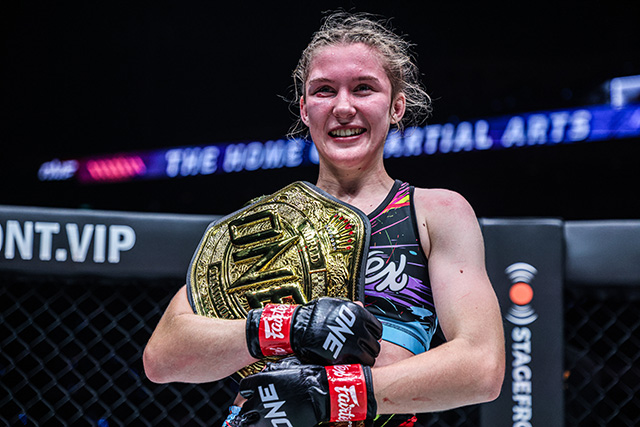The Savage Truth: When Is Enough Enough?
Editor’s note: The views and opinions expressed below are those of the author and do not necessarily reflect the views of Sherdog.com, its affiliates and sponsors or its parent company, Evolve Media.
It’s a question that has been posed for decades: When should combat sports athletes hang up the gloves?
Advertisement
It was Silva’s fifth first-round knockout loss in his last seven starts dating back to May 2013. When you consider he has just one win over journeyman Soa Palelei and a win that was changed to a loss with Mark Hunt after he tested positive for PEDs in that timespan, you have to wonder what “Bigfoot” is bringing to the table at this point in his career.
I have always said it is the fighter’s decision, along with their
family, coaches and loved ones, to make the call about when to give
up their career as a prizefighter. The same goes for other
high-impact sports such as football or hockey. When you talk to
them about taking years off their lives, most understand the risks
and are willing to trade some time at the end for a job that
provides pretty handsomely for their families, and one that they
tend to love doing.
It creates quite a conundrum for the promoters and leagues that employ, or “independently contract,” with them.
The UFC has done a pretty good job of policing themselves in regards to keeping fighters around beyond their expiration dates. We all saw what happened when Chuck Liddell dropped five of his last six fights, four of them by knockout. Dana White went public about his desire to see “The Iceman” retire.
With all the concussion-related lawsuits we’ve seen in other sports over the last few years, it is no wonder so much interest is being paid to combat sports and their participants’ long-term well-being. We’ve seen the Cleveland Clinic’s Professional Fighters Brain Health Study being supported by both the UFC and Bellator MMA. I’d like to think the promoters are being altruistic in their support, but I’m sure it is a bit of both caring for their athletes and getting ahead of any potential future litigation from their contractors. There is nothing wrong with that, in my opinion. It is a good, carefully crafted business approach as well as an honorable thing to do. It is the epitome of the win-win strategy.
That isn’t to say those promotions have been perfect in how they have handled this difficult part of the business. We just saw Kimbo Slice fight Dhafir “Dada 5000” Harris in a bout that saw both heavyweights nearly collapse from exhaustion. Dada almost died in the cage after a rough weight cut left him physically diminished.
From what I hear, Bellator president Scott Coker recently fielded a request from Dada to fight again. Coker’s response was, “Let’s just be friends.” That is the right approach now, but that should have been his answer the first time this freak show fight was suggested.
Bellator has also brought back fighters from the MMA Stone Age to compete regularly, and though nothing terrible has happened -- other than fans being forced to watch these horribly faded stars of yesteryear “compete” -- they are tempting fate each and every time out.
The UFC has not been quite as egregious, but they have let a number of fighters continue to compete at the highest level of MMA when it was clear they couldn’t keep up. Generally, it is the star-level athletes who are given every chance to prove they still belong, for obvious reasons. That is what makes it doubly hard to pull the plug on some of these fighters.
We’ve grown accustomed to these top-tier fighters being able to defy the odds, to compete with the best of the best for so long that it is, at times, hard to see the decline until it is beyond evident.
So what is the answer? Hell if I know.
Other than the most blatant of situations, it is extremely difficult to tell someone they can’t compete and earn a living. What the big promotions can do is let them out of their contracts to go compete elsewhere until they realize they just can’t cut it anymore or prove they deserve another shot.
The fact of the matter is that a fighter who gets permanently disabled in the UFC or even Bellator is going to bring a whole lot more scrutiny to the sport than a fighter who hangs on a little too long in the regional circuit. It will also cost those promotions a whole lot more money when they have to fight a lawsuit, like the NFL and NHL have been doing for years now.
That brings us back to Bigfoot. What should be done in the case of a heavyweight fighter who can’t seem to make it out of the first round anymore? Even if you don’t think he is risking lasting consequences every time he steps in the cage, it is apparent that he cannot compete with even the middle-of-the-road UFC heavyweights.
I don’t think there is any question that Silva should be released from the promotion. If he chooses to continue on, that is on him. Perhaps he can figure out some things and return after some fights against lesser competition, just like fellow Rotterdam competitor Andrei Arlovski, who was in a similar situation before he reinvented himself at Jackson-Wink MMA.
It has to be tough to be told you are not as good as you once were, but every athlete has to have that conversation at some point. Though I don’t believe people should try to make up fighters’ minds about doing this crazy job, I do believe it is in everyone’s best interest if they tell them where they can’t compete.
Sherdog.com Executive Editor Greg Savage can be reached by email or via Twitter @TheSavageTruth.
Related Articles







